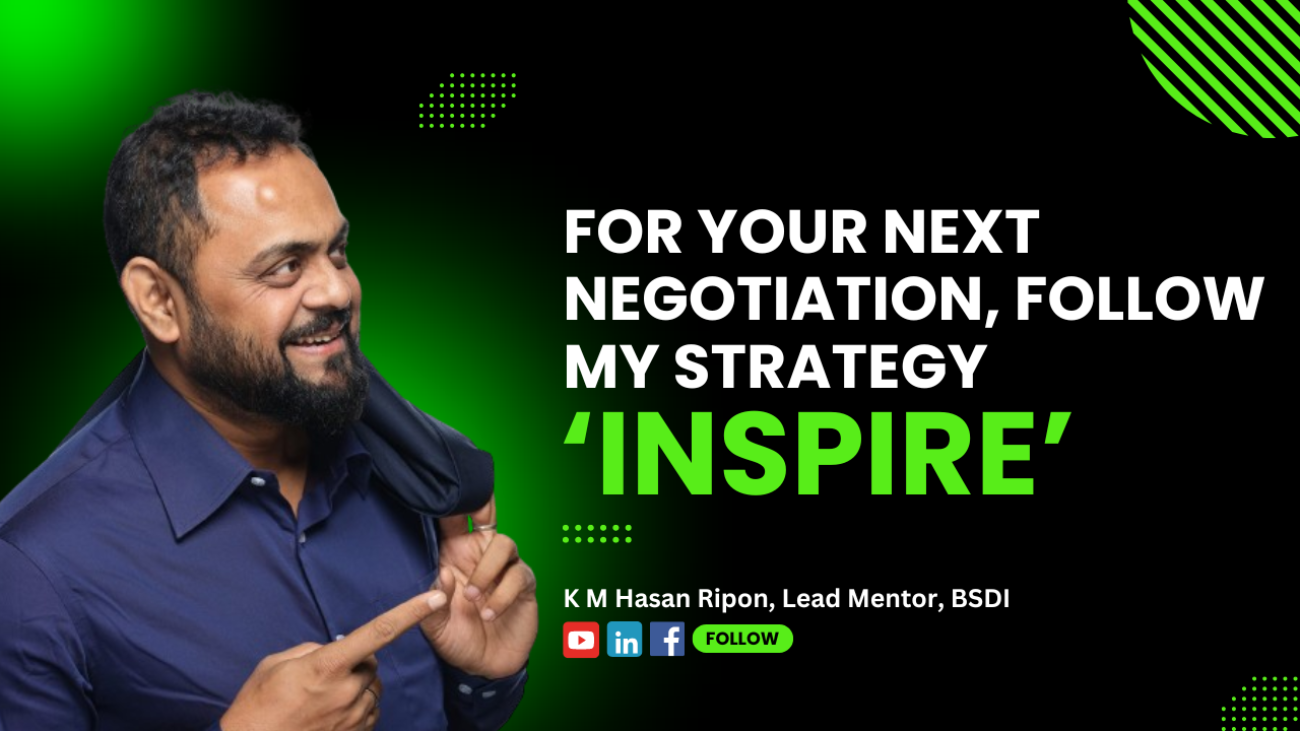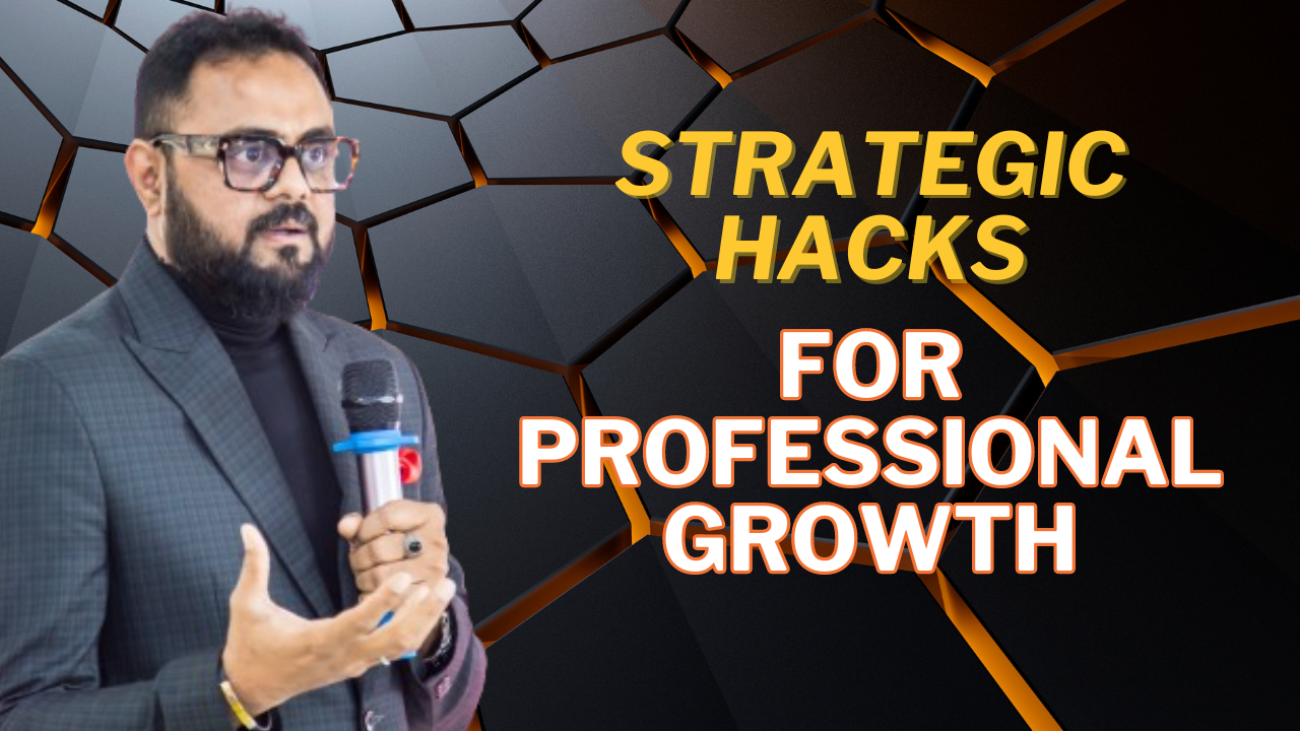Negotiation is an important skill that can have major impacts on both your personal and professional life. Having capable to negotiate well opens up a lot of different opportunities, whether you are closing a business deal, negotiating a salary, or solving problems. In this article, I will talk about the INSPIRE strategy, an organized approach to negotiate where each letter stands for a key skill or technique that will help you get better at negotiating.
I – Identify Interests
When you negotiate, it’s not enough to just say what you want. You also have to know what the other person wants and needs.
Before you start negotiating, you should take the time to find out what each party actually wants. Listen carefully and ask open-ended questions to find out what their targets, intentions, and problems are. For Example when negotiating shelf space for a new product, as a salesperson, figure out what the retailer wants most—whether it’s higher profitability, strong brand support, or consumer demand. If the merchant is interested in rapid sale rates, show how your product’s high demand and promotional assistance can result in speedy sales.
N – Navigate Options
Being able to choose other options gives you power and keeps you from negotiating out of fear.
Before you start talking, you should always come up with alternatives, also known as a “BATNA” (Best Alternative to a Negotiated Agreement.” This gives you the freedom to back out if the terms are not good. For Example if your initial request for shelf space does not receive the desired response, have alternate proposals ready. These could include upgraded promotional materials, higher discounts for bulk purchases, or longer payment terms. Having these options can help you discover a solution that works for both sides.
S – Set Clear Goals
Setting clear, measurable, and achievable targets will help you stay focused and guide your negotiations.
Make it very clear what you want to get out of the discussion. Set specific targets, like what salary you want, the scope of the job, or the deadline, and think about the very least that is acceptable. For Example Set clear goals before the meeting, such as getting a certain quantity of shelf space or meeting a sales volume target. Aim for prime positioning for your product on an end cap, or negotiate a minimum order quantity that ensures prominent display and frequent replenishment.
P – Persuade with Evidence
Providing well-researched data supports your position and makes the point more convincing.
Use data, testimonials, case studies, and other facts to support up your proposals. This increases credibility and convinces the opponent that your terms are acceptable and justifiable. For example, present facts about your product’s market performance, such as sales growth, consumer demand, and successful case studies from other stores. Try to demonstrate how similar products have increased foot traffic and sales in other locations to persuade the retailer of the possible advantages.
I – Innovate Solutions
Negotiations can be effective when flexibility and creativity are used to develop solutions that benefit both parties.
Be open to exploring many ideas that benefit both parties. Think beyond the box and propose different solutions to suit both parties. For example, if the retailer is concerned about shelf space limitations, suggest rotating promotions or seasonal displays that highlight your product without requiring long-term shelf space. You could also propose co-branded marketing efforts or in-store events to drive product visibility and sales.
R – Respect Relationships
Maintaining a positive relationship is critical to long-term success and future negotiations.
Approach the negotiation with empathy and respect. Instead of taking an aggressive attitude, work on creating trust and finding common ground. Make sure every party is understood and respected. For example, approach the negotiations with sensitivity and expertise. Understand the retailer’s limits and demonstrate a willingness to reach a mutually beneficial solution. Thank them for their relationship and assure them that you are devoted to assisting them with their business goals through collaborative efforts.
E – Evaluate outcomes.
After the negotiations, evaluate the outcomes and consider what went well and what may be improved.
Analyze the negotiation process and outcomes to learn from your experience. This allows you to discover strengths, shortcomings, and places for improvement in future discussions. For example, after closing the deal, consider what worked well and what could be improved. Did the store respond well to your data presentation? Were your proposed solutions effective in finding a compromise? Use these insights to improve your approach to future negotiations, resulting in continuing success and stronger connections.
Learning the art of negotiating is vital for accomplishing your goals and expanding your career. By using the INSPIRE strategy, you may approach negotiations with confidence and strategic understanding, with positive outcomes and stronger connections. Remember that great negotiation is about more than just winning; it is about creating solutions that benefit all parties involved.
Now it’s time to put these techniques into action and negotiate your way to success!


